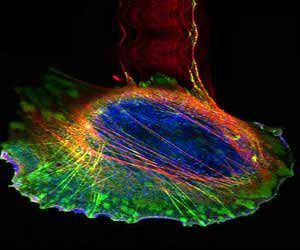A distinct gene module for T cell dysfunction distinct from activation in tumor-infiltrating T cells has been identified by investigators.

‘A distinct gene module for T cell dysfunction distinct from activation in tumor-infiltrating T cells has been identified by investigators.’





To better understand the molecular underpinnings of T cell dysfunction, the research team analyzed tumor-infiltrating lymphocytes (TILs), using single-cell as well as cell-population analysis techniques. They identified several pathways as well as a transcription factor, Gata-3, that contribute to T cell dysfunction, and used CRISPR/Cas9 genome editing to further demonstrate the role of Gata-3 in T cell dysfunction. "Our work opens up new avenues for specifically targeting the dysfunctional T cell state while leaving the programs that drive T cell activation intact," said Ana C. Anderson, an associate scientist at BWH.
This work represents the combined efforts of two BWH laboratories: the laboratory of Anderson, who is also the co-chair of BWH's Infectious and Immunologic Disease Center at the Brigham Research Institute, and the laboratory of Vijay K. Kuchroo, director of Evergrande Center for Immunologic Diseases. This work was completed in collaboration with the laboratory of Aviv Regev, at the Broad Institute.
Source-Eurekalert










